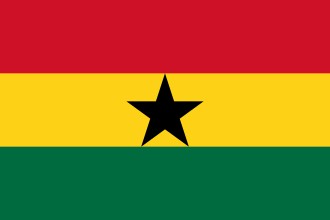Ghana
download profileExecutive Summary
Ghana presents promising opportunities for the development of blue carbon projects on the Voluntary Carbon Market (VCM). The country has already seen the emergence of one mangrove project under Verra’s standard, alongside twelve other nature-based carbon credit projects across forest, peat, and agriculture sectors, under both Verra and Gold Standard. This early engagement refl ects growing interest and capacity in Ghana to host high-integrity carbon initiatives.
The Ghanaian government has established a robust regulatory framework for all carbon credit projects engaging in the VCM. While projects that do not seek Corresponding Adjustments (CA) face fewer requirements, they must still apply for formal recognition by the Carbon Market Offi ce. Projects requesting CA must undergo a full authorization process and obtain Letters of Authorization. All projects must also register with either the national Ghana Carbon Registry or a recognized international registry. Additionally, developers must secure an environmental permit and comply with annual Measuring, Reporting, and Verifi cation (MRV) obligations. Although Ghana does not legally mandate benefi t-sharing agreements for nature-based carbon projects, voluntary arrangements have been implemented, particularly under REDD+ programs. Similarly, there are no legal requirements for Free, Prior, and Informed Consent (FPIC); however, public consultation is required through Environmental Impact Assessments. Ghana’s REDD+ safeguards, while non-binding outside the REDD+ framework, emphasize respect for community rights, land tenure, and inclusive participation.
Land tenure in Ghana is diverse and complex. The state is not the exclusive owner of mangrove forests. Instead, most mangrove areas are governed under customary systems, where traditional authorities (stools or skins) hold allodial titles, and individuals or families may hold usufructuary rights. Private and community entities can lease or manage mangrove areas through formal agreements, including long-term leases and community-based frameworks like CREMAs (Community Resource Management Areas). These legal arrangements permit both private and community ownership models to support nature-based carbon projects. However, the absence of a clear legal defi nition of carbon rights introduces uncertainty, as ownership of carbon stored in mangrove ecosystems has yet to be clarifi ed or linked to existing land and natural resource rights.
Overall, Ghana has favorable enabling conditions for blue carbon projects. The government has set clear pathways for project approval, authorization, and registry integration; land tenure frameworks allow for both community and private participation; and monitoring requirements strengthen credibility. While the absence of legally defi ned carbon rights and binding benefi t-sharing or FPIC provisions may create some uncertainty, existing voluntary standards and customary land systems provide a workable foundation for project development. For investors and project developers, these conditions suggest a supportive policy environment—one that will benefi t from continued engagement with government agencies, traditional authorities, and local communities to ensure equitable and transparent implementation of blue carbon initiatives.
Download the full report to explore all findings and recommendations in detail.


